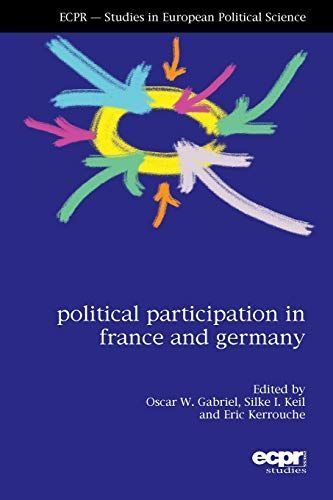
Political Participation in France and Germany
How do France and Germany compare in the world of participatory political communities? This volume sets out an impressive historical, theoretical and institutional framework for a comprehensive, comparative and empirical analysis of the forms, patterns, trends and determinants of citizen participation in two of Europe's largest democracies. Written by an international team of political scientists, it starts with an outline of the participatory traditions in both countries before turning to the theoretical foundations of empirical research regarding the role of political participation in modern democracies. It provides an overview of how the perception of political participation has changed over the years and the forms of both conventional participation, particularly with regard to electoral participation, and unconventional participation like protest and other new forms of citizen involvement are analysed in detail. Exploring new approaches in participation research, social participation is seen as not just correlating with political participation, but as a specific form of civic engagement in itself. A broad range of activities, such as electoral and party related participation, political protest, participation in voluntary associations, voting in referenda and taking part in dialogue-orientated participatory activities is examined and the analysis identifies which societal, institutional and cultural factors account for the differences and similarities between the two countries.